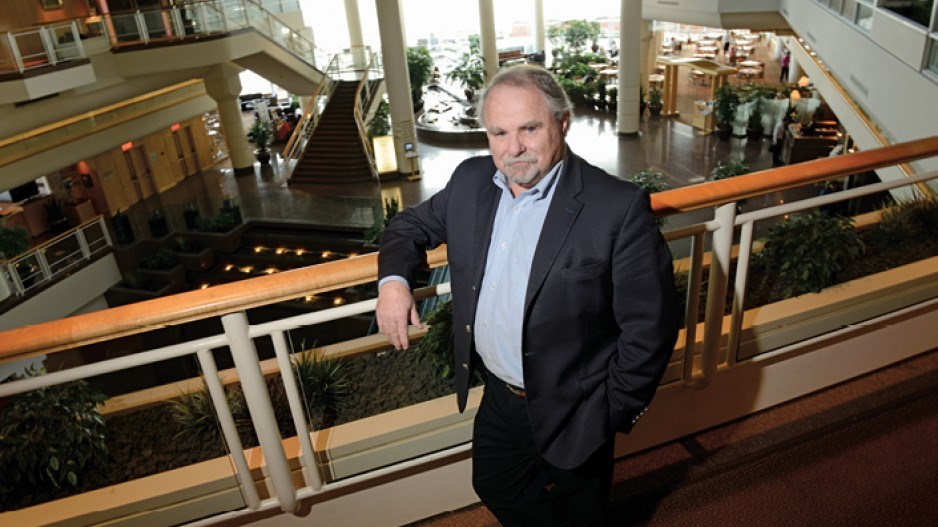After more than two decades of organizing large conventions, events that have hosted more than 200,000 delegates cumulatively, Globe Foundation president and chief executive officer John Wiebe is still busy selling "the business of the environment."
And this month, Wiebe's schedule promises to be full again as the biannual Globe Conference descends on the Vancouver Convention Centre March 26 to 28.
As at past conferences, the 2014 lineup boasts international names such as Janez Potoc?nik, European Union commissioner for the environment, and Robert F. Kennedy Jr., president of Waterkeeper Alliance and son of former U.S. senator Robert Kennedy, alongside energy executives such as Al Monaco, president and chief executive officer of Enbridge Inc. (TSX:ENB).
Wiebe said such a varied program highlights a consistent theme Globe conferences strive to promote: "having your cake and eating it too."
"You can look after the environment and create a good economy, create profits, run your companies and still make money and satisfy your shareholders," Wiebe told Business in Vancouver. "Looking after the environment and encouraging sustainability can and will create jobs."
In addition to the high-profile speakers, the conference offers myriad expert panels on issues ranging from the emergence of the sharing economy to engagement with First Nations communities on traditional resource projects such as mining and pipeline development.
The latter topic, a hot-button issue in B.C., will be discussed in a panel dubbed "Commodities and Corridors."
Douglas Eyford, a Vancouver-based partner at law firm Eyford Macaulay Shaw & Padmanabhan, is scheduled to take part. Last year, Eyford published Forging Partnerships, Building Relationships at the request of Prime Minister Stephen Harper. The report explored how First Nations communities in B.C. and Alberta can participate in and profit from oil and gas developments.
In B.C., the promised massive expansion of the natural gas industry, including drilling in the northeast, pipelines to the coast and the construction of liquefied natural gas export terminals, will encroach on the traditional territories of some First Nations communities.
For instance, the Carrier Sekani Tribal Council, a group consisting of eight aboriginal communities in central and northeastern B.C whose lands sit adjacent to natural gas basins, has said it wants a share of any revenue generated from the province's recently announced LNG tax. The council has also rejected Enbridge's controversial Northern Gateway pipeline.
During his research for the report, Eyford said he routinely heard from aboriginal communities that wanted to be included from the outset in any discussion on resource developments and receive training so the projects employed band members.
Companies that ignore those stipulations risk having their projects halted or significantly delayed.
"Final investment decisions by companies, many of them headquartered outside of Canada, are going to depend on the extent to which First Nations issues can be addressed," said Eyford.
Byron LeClair, director of energy project development with Ontario's Pic River First Nation and a panellist in the "Commodities and Corridors" session, echoed Eyford's message.
LeClair said First Nations communities must be consulted before any work is done on a resource project.
"Recognition of [First Nations'] rights often becomes secondary to economic development, and I think that is what so often gets a development in trouble."
Main recommendations from Eyford's report:
•Build trust: establish constructive discussion about energy development and demonstrate commitment to environmental sustainability
•Foster inclusion: focused efforts to realize aboriginal employment and business prospects
•Advance reconciliation: recommend refinements to consultation and engagement methods with First Nations communities and encourage communities to resolve shared territory disputes
•Take action: establish a Crown-First Nations working group to discuss West Coast energy projects
SOURCE: Douglas Eyford's Forging Partnerships, Building Relationships report, published November 20, 2013




